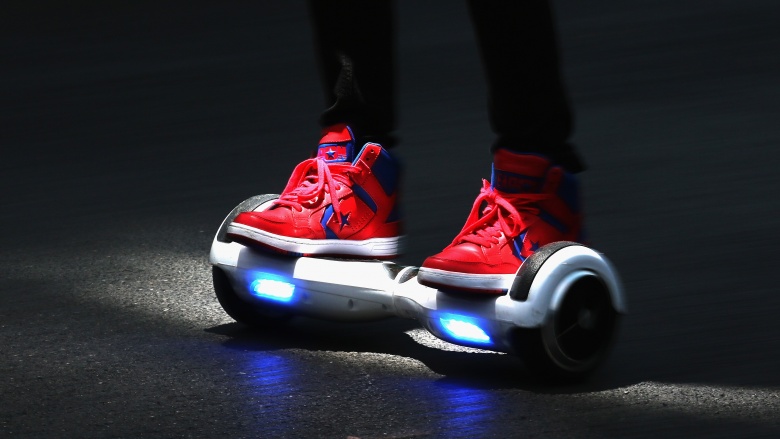Gadgets To Improve Your Life Over The Next Five Years
From the popularization of social media to the invention of smartphones, we've seen technology fundamentally change our lives over the past 10 years. Technology companies, not content to stop there, are continuing their inexorable march toward future innovation. What new gadgets will revolutionize our lives five years from now? The possibilities are endless, but here are a few technologies that will probably make their mark.
Internet satellites
Humanity is beginning to view Internet access as less of a luxury and more of a fundamental right. Following this line of thinking, Elon Musk, founder of SpaceX and Tesla automobiles, is planning to launch a worldwide, high-speed, wireless Internet service by 2020. Musk's idea is to send 4,000 satellites into Earth's orbit. These satellites will send a wireless signal to every part of the planet. Richard Branson, the billionaire founder of Virgin Group, is also supporting OneWeb, a company that plans to do something similar before 2020. Cue the conspiracy theories.
5G cellular networks
Mobile phone companies are constantly conducting research into faster service that will make the current 4G generation of networks look like dial-up modems by comparison. Both Verizon and AT&T have plans to test a beta version of 5G networks in 2016. AT&T claims that their 5G service will be 10 to 100 times faster than LTE/4G technology. These 5G networks could bring internet access to even more populations around the world. Expect to have widely available 5G networks around 2020. Just imagine all the cat pictures you can simultaneously download on a 5G network...
Wearable technology
Some of the first truly wearable technologies like Google Glass and the Apple Watch, have had rocky starts. Nevertheless it seems likely that these wearable technologies will become more standard over the next five years. Although it may sound like cyberpunk fan fiction, the notion of having all your data in a compact personable device is not unrealistic. After all, who would have thought, in 1997, that 10 years later Apple would unveil the iPhone to the world? In the meantime, be on the lookout for smart jewelry developed by the company Mira. Think of smart jewelry as a Jawbone made to look like a bracelet or necklace. Fans of the video game Deus Ex should take heart—we're on our way to robot arms and x-ray vision.
Virtual Reality
The notion of virtual reality has been long in gestation. Occasionally, it poked its head out in the 1990s and 2000s—with failed ideas like Nintendo's Virtual Boy—but the potential never lived up to the technology. With 20016's introduction of the Oculus Rift headset—and other companies like Sony and HTC introducing their own VR tech—this might all change. There are countless applications for virtual reality technology. Video gaming, naturally, is one of the big ones. Consumers will likely see some virtual reality version of World of Warcraft in the next five years. Education, however, is another clear possibility. Imagine experiencing life through the eyes of a commoner in medieval London. It'd be like going to the Renaissance Festival, without fear of dealing with the drunk guy holding turkey legs in each hand.
Transportation devices
Americans' love affair with the automobile is a long one, and it's not about to end anytime soon. Nevertheless, new and improved ways of commuting—especially in urban environments—will likely be more prevalent over the next five years. Take for example, the upcoming XCooter. This electrically powereded scooter is made of aluminum and enables you to travel at up to 17 miles per hour for about 15 miles. While this sounds impressive, we're still waiting for rocket boots.
Streaming services and devices
Yes, streaming video is already incredibly popular. It will nevertheless continue to change our lives by continuing to eliminate physical media. The need for video game discs, DVDs, and even Blu-Rays will become smaller over the next five years. After you convert your DVD collection to an electronic format, then you can free up that floor space for a 3D printer. And pretty soon after that? Food replicator. Why not?






